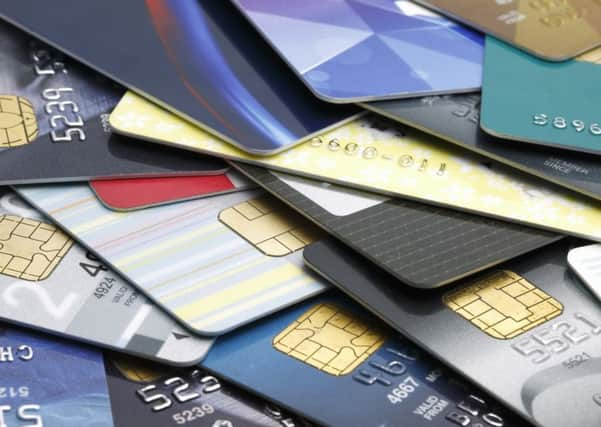Darren McGarvey: Paying off your debts can change your life


As of Friday, I owe just over £800 to the bank for an old overdraft and a so-far undisclosed amount to a mobile phone company for a contract I failed to honour.
But apart from that, the niggling debts I incurred throughout the alcohol-fuelled chaos of my 20s is all but gone. It feels really good. If you had told me ten years ago, that I would become the sort of person to not only pay my debts, but to actively pursue creditors from which I became dislocated due to constantly moving home, I’d have laughed at you. More than that, I’d have rattled off a slew of pre-prepared arguments for why my non-payment of debt was not only justified, but also deeply ethical.
Advertisement
Hide AdAdvertisement
Hide Ad“Money isn’t real, it’s an instrument of oppression created by banks to enslave us” was a favourite of mine. “My debt is insignificant in the grand scheme of things and I’ll be damned if I’m putting myself in a hole while big businesses are dodging tax” was another. What I have since realised is that the reasoning for failing to meet my financial obligations – motivated mainly by my unwillingness to part with money – was deeply dishonest. Not just dishonest in terms of the yarns I’d spin to explain why my finances were in such poor condition, but also the lies I was telling myself, both about the nature of my debt and the sort of person I believed I was.
I grew up in a community where people didn’t have a lot of money. But rather than all just admit it, thus freeing ourselves from pretence, many of us got caught up in trying to conceal our poverty in different ways because poverty, for some, was something to be ashamed of. As a teenager, I recall many times when my dad would get stressed out about money. There were bills to pay, groceries to buy and the general living costs of running a house with three kids and only one parent. On top of these overheads, we needed new clothes for school, money for travel and, as well as birthdays, there was Christmas. The pressure we faced as a family came from all angles. My dad felt pressure from us to provide a certain standard of living and we felt pressure from our peers to exude the sort of prosperity we simply did not have.
For everything else, there was your grandparents, who survived by precisely the same means but tended to have money when we didn’t and vice-versa. Essentially, it was an entire family getting by week-to-week by borrowing money in various forms. There’s nothing wrong with that and if you can manage it then it can be very useful. Of course, like many families, we couldn’t always manage it.
This meant developing evasion strategies, like ignoring a chap at the door, throwing unopened envelopes in the bin or fibbing on the telephone that nobody was home. For many young people, growing up in a debt-ridden household, this perilous relationship with money is formative and, in many ways, becomes second nature.
By my mid-20s, I had maxed out a credit card and overdraft (which was then subject to obscene charges that almost doubled the original sum) and accumulated various other debts, either with landlords or for items I purchased impulsively, like hi-fis and DVD players. All in all, I ran up a good few grand more than I could ever have afforded – even if I hadn’t been so careless with the money I did have.
It took me a long time to accept that the best way to deal with my debts was to face them head-on and stop hiding behind hastily fashioned, self-justifying excuses for ignoring it. Not just because I had to take some responsibility but also because of the harm financial anxiety was doing to me psychologically and practically.
For many people, simply the thought of beginning the process of confronting debt can feel overwhelmingly complicated – especially when you are feeling stressed. It’s this urge for procrastination that can lead to problems piling up. It may also feel counter-intuitive to hand over large sums of money to third-parties, like debt-collectors, so long after the fact.
I made a conscious decision to seek out creditors and settle up – whether I thought it was fair or not – and funnily enough, I found the experience surprisingly liberating because I was finally taking control of my life.
Advertisement
Hide AdAdvertisement
Hide AdSo, if you are struggling to confront your debts and think there’s no point in even trying, take it from me: start today you will feel better immediately. Even just a phone call or a to-do list you can work through in the morning.
Whatever you do, please don’t delay. Ignore the voice in your head and do what you know in your heart is right. You owe it to yourself.
